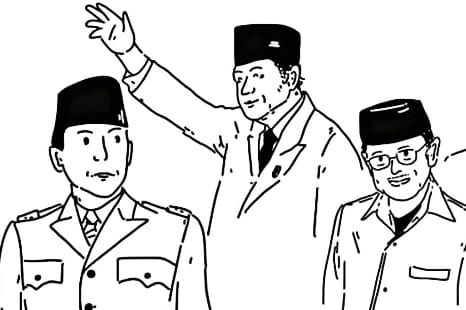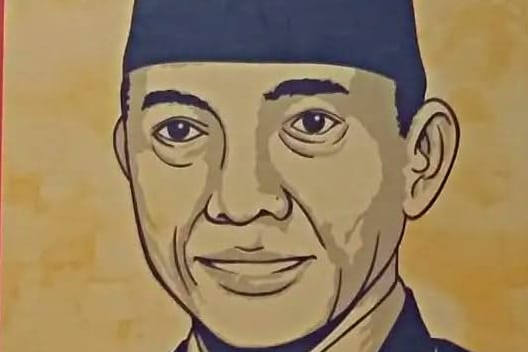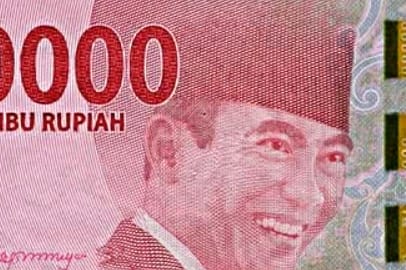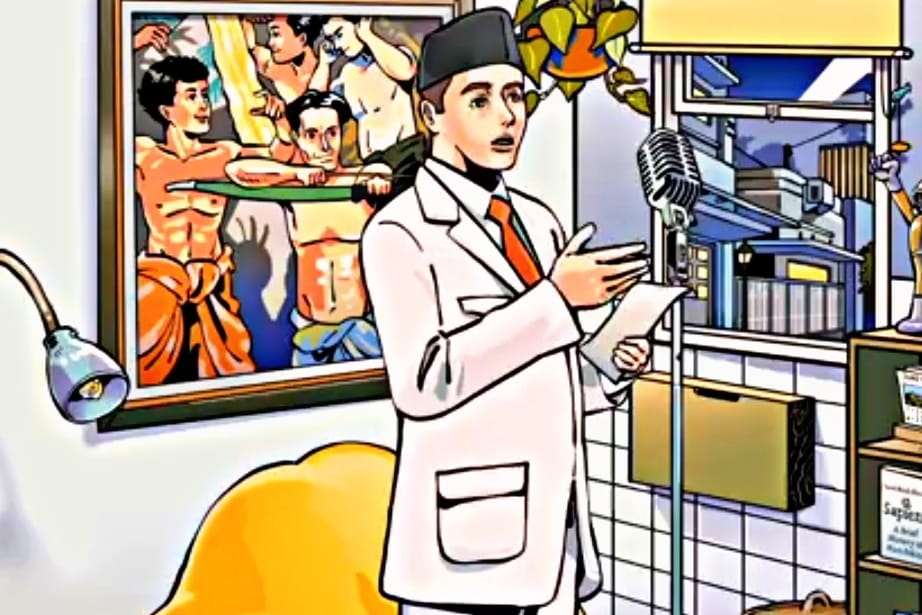Sukarno, the first President of Indonesia, was one of the most pivotal figures in Southeast Asia’s modern history. Revered as the founding father of Indonesia, his legacy endures in the nation’s national identity and political landscape. Sukarno’s leadership was instrumental in Indonesia’s struggle for independence from Dutch colonial rule and in the establishment of a sovereign republic. His ideas, passion for nationalism, and commitment to unity shaped the nation during its formative years.
Born on June 6, 1901, in Surabaya, East Java, Sukarno was raised in a time when Indonesia was under colonial rule. His rise to prominence, however, was not merely the result of circumstance. His intelligence, vision, and charismatic leadership helped him galvanize the masses, inspiring generations of Indonesians to fight for their independence. As a man who fiercely believed in the potential of his people, Sukarno’s influence transcended the boundaries of politics; he became a symbol of hope, resilience, and pride for the Indonesian nation.
This article delves into the life, ideas, leadership, and legacy of Sukarno, exploring how he rose to become the father of the Indonesian republic and why his contributions continue to resonate in Indonesia and the world today.
Early Life and Education

Sukarno was born as Kusno Sosrodihardjo to a Javanese noble family. His father, Raden Sukemi Sosrodihardjo, was a school teacher, and his mother, Ida Ayu Nyoman Rai, hailed from Bali. Although his family was of noble descent, Sukarno’s upbringing was modest. His early exposure to the disparities between the native Indonesian population and the colonial authorities would leave an indelible mark on his later political philosophy.
Sukarno attended the European-style schools established by the Dutch colonial regime. He was an intelligent and ambitious student, excelling in his studies. He later enrolled in the Technische Hoge School (THS) in Bandung, which is now known as the Bandung Institute of Technology (ITB). It was at THS where Sukarno’s nationalist ideology began to take shape. He studied civil engineering, but his passion for politics and the struggle for independence started to grow.
During his student years, Sukarno became deeply involved in nationalist movements, connecting with like-minded individuals who shared his vision of a free Indonesia. He was particularly influenced by the thoughts of figures such as Mohammad Hatta, later Indonesia’s first Vice President, and other members of the Indonesian Nationalist Party (PNI). This period marked the beginning of commitment to his country’s independence.
The Rise of Sukarno: A Nationalist Leader

Sukarno’s political journey truly began in the early 1920s when he co-founded the PNI, an organization dedicated to promoting Indonesian nationalism and self-rule. The Dutch colonial authorities, who had long maintained a stronghold over Indonesia, viewed such movements with suspicion and hostility. Sukarno’s PNI, which demanded full independence, was banned by the Dutch government in 1927, leading to his arrest and imprisonment.
Despite his imprisonment, Sukarno’s influence only grew. In 1933, after being released from jail, he continued to lead the Indonesian independence movement from behind bars. It was during this time that Sukarno began formulating some of his most famous ideas and philosophies, which would later guide Indonesia’s post-independence development.
One of Sukarno’s most influential political concepts was his vision of “Marhaenism,” which was based on the belief that Indonesia’s strength lay in its common people, or “Marhaen.” Sukarno sought to unite the masses, transcending class divisions and promoting a sense of shared national identity. His ability to rally support from all sections of society—from workers to intellectuals, from peasants to city dwellers—was a key element of his rise as a political leader.
Sukarno’s vision for Indonesia extended beyond mere independence; he sought to establish a nation rooted in justice, unity, and prosperity. His approach to achieving these ideals was unorthodox and radical, and it earned him both admiration and criticism.
The Struggle for Independence
The years leading up to Indonesia’s independence were marked by intense political, social, and military turmoil. The Japanese occupation of Indonesia during World War II (1942-1945) disrupted Dutch colonial rule but created new challenges for the nationalist movement. Although Japan’s imperialistic ambitions in Southeast Asia had devastating consequences for Indonesia, the Japanese occupation inadvertently helped pave the way for independence. During the Japanese period, Sukarno was allowed to engage in political activity, though under strict Japanese supervision. He used this opportunity to negotiate with the Japanese for greater autonomy for Indonesia.
When Japan was defeated in 1945, the power vacuum it left behind created a chance for Indonesian nationalists to declare independence. On August 17, 1945, Sukarno, alongside Mohammad Hatta, proclaimed Indonesia’s independence. This declaration of independence was a pivotal moment in the nation’s history, but it did not come without challenges. The Dutch, seeking to reassert control over their former colony, launched a military campaign to reclaim Indonesia. This period of armed struggle, known as the Indonesian National Revolution (1945–1949), was fraught with violence and political unrest.
Sukarno’s leadership during the revolution was crucial. His ability to unite various factions within the Indonesian independence movement—communists, nationalists, and religious groups—was a testament to his political acumen. Despite facing considerable external pressure, Sukarno and his colleagues maintained their resolve. Negotiations between Indonesia and the Dutch government, aided by international pressure, culminated in the 1949 Dutch-Indonesian Round Table Conference, which officially recognized Indonesia’s sovereignty.
The Birth of a Nation: Sukarno as President

Following Indonesia’s official independence in 1949, Sukarno became the country’s first president. He had become an icon of Indonesian nationalism, and his influence was immense. However, the early years of Indonesia’s independence were not easy. The country faced a host of challenges, including political instability, economic difficulties, and internal conflicts between different ethnic, religious, and political groups.
Sukarno, ever the visionary, sought to establish a unified and strong republic. His political philosophy, which he called “Guided Democracy,” was aimed at maintaining stability in the face of these challenges. Under Guided Democracy, emphasized the importance of strong presidential leadership while maintaining a coalition government that represented various factions. This was a period of significant political experimentation, as Sukarno attempted to balance the various forces in Indonesian society.
One of the central elements of vision was the promotion of “Pancasila,” a five-principle ideology that he formulated as the philosophical foundation of the Indonesian state. The principles of Pancasila were:
- Belief in one God
- A just and civilized humanity
- The unity of Indonesia
- Democracy guided by the wisdom of representative deliberation
- Social justice for all of Indonesia
These principles were designed to reflect Indonesia’s diverse religious, cultural, and social makeup while providing a common ideological framework that could unite the nation. Pancasila remains the official state philosophy of Indonesia to this day and is a lasting testament to commitment to national unity.
Sukarno’s Foreign Policy: Non-Aligned Movement
Sukarno’s influence was not confined to Indonesia alone; he also sought to play a leading role in the broader international community. In the context of the Cold War, where the world was divided into competing blocs led by the United States and the Soviet Union, Sukarno took a neutral stance. He became one of the founding leaders of the Non-Aligned Movement (NAM), which sought to unite countries that did not want to align with either of the superpowers.
The Bandung Conference of 1955, which was hosted by Indonesia, brought together leaders from newly independent countries across Asia and Africa. This conference was a landmark event in the history of the Non-Aligned Movement and solidified Sukarno’s status as an international statesman. His speeches at the conference emphasized the importance of solidarity among newly independent nations and the need for economic and political cooperation without external interference.
Sukarno’s foreign policy also sought to assert Indonesia’s leadership in Southeast Asia. He was a vocal advocate for the liberation of other colonized nations, and his support for revolutionary movements in countries like Vietnam and Algeria earned him respect in many parts of the world.
The Decline of Sukarno’s Rule
Despite Sukarno’s early successes, his later years in power were marked by growing political and economic instability. The 1960s saw increasing tensions between the military and communist factions in Indonesia, particularly as the Indonesian Communist Party (PKI) gained influence under leadership. Sukarno’s attempts to maintain a balance between these factions, while also suppressing the influence of the military, ultimately led to political chaos.
In 1965, an attempted coup by a group of army officers, known as the 30th September Movement, led to widespread violence and the eventual downfall of Sukarno’s government. The military, under General Suharto, gained control of the country. Suharto’s rise to power marked the beginning of the New Order regime, which would last for over three decades.
Sukarno was placed under house arrest and spent the final years of his life in relative obscurity. Despite his fall from power, role in Indonesia’s independence and the shaping of the nation’s identity was never forgotten. He died on June 21, 1970, at the age of 69.
Legacy of Sukarno
Sukarno’s legacy remains complex and multifaceted. On one hand, he is revered as the father of Indonesia, the man who led the nation to independence and laid the foundation for its political and social institutions. On the other hand, his later years in power were marked by political instability, economic decline, and authoritarian rule, which tarnished his image in the eyes of some.
Nevertheless, Sukarno’s vision of a unified Indonesia, based on the principles of Pancasila and guided by the ideals of nationalism, remains central to the nation’s identity. His contributions to the global struggle for independence and his role in shaping the Non-Aligned Movement continue to be celebrated.
Sukarno’s legacy is also evident in the enduring respect he commands from the Indonesian people. Monuments, statues, and institutions across Indonesia honor his memory, and his speeches continue to inspire future generations of leaders. In a country as diverse and complex as Indonesia, Sukarno’s ideas of unity in diversity—expressed through Pancasila—continue to resonate deeply.
Conclusion
Sukarno was a man of vision, ambition, and resilience. His leadership helped forge a nation from the ashes of colonialism and guided Indonesia through some of its most tumultuous periods. Sukarno’s ideas, his commitment to his people, and his quest for justice shaped Indonesia’s identity as a sovereign nation. While his later years may have been marked by controversy and political upheaval legacy as the father of Indonesia remains indelible.
Sukarno was more than just a political leader; he was a symbol of hope and a testament to the power of ideas in shaping history. As Indonesia continues to evolve and grow, the principles and ideals that championed will undoubtedly remain central to the nation’s future.

